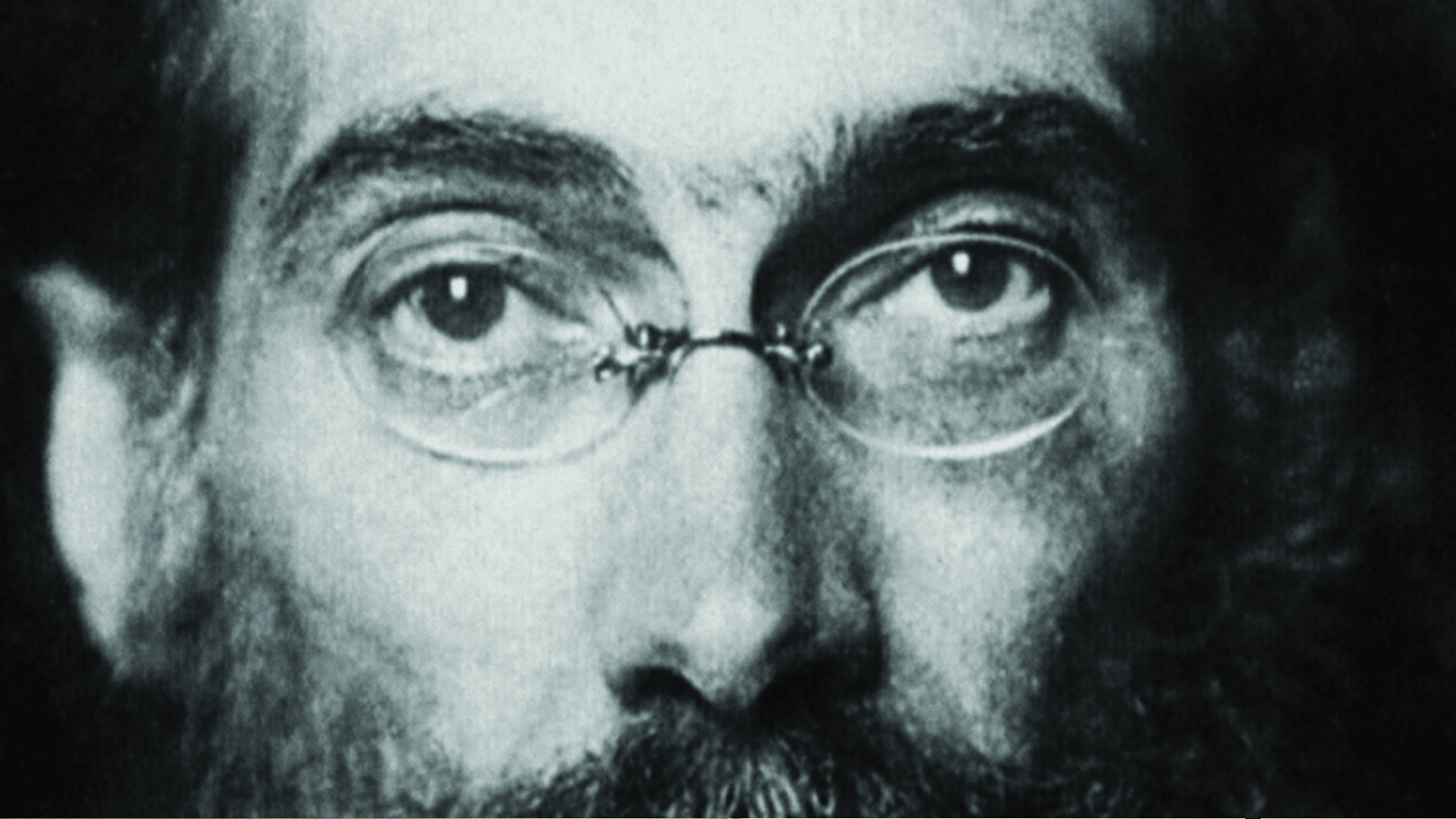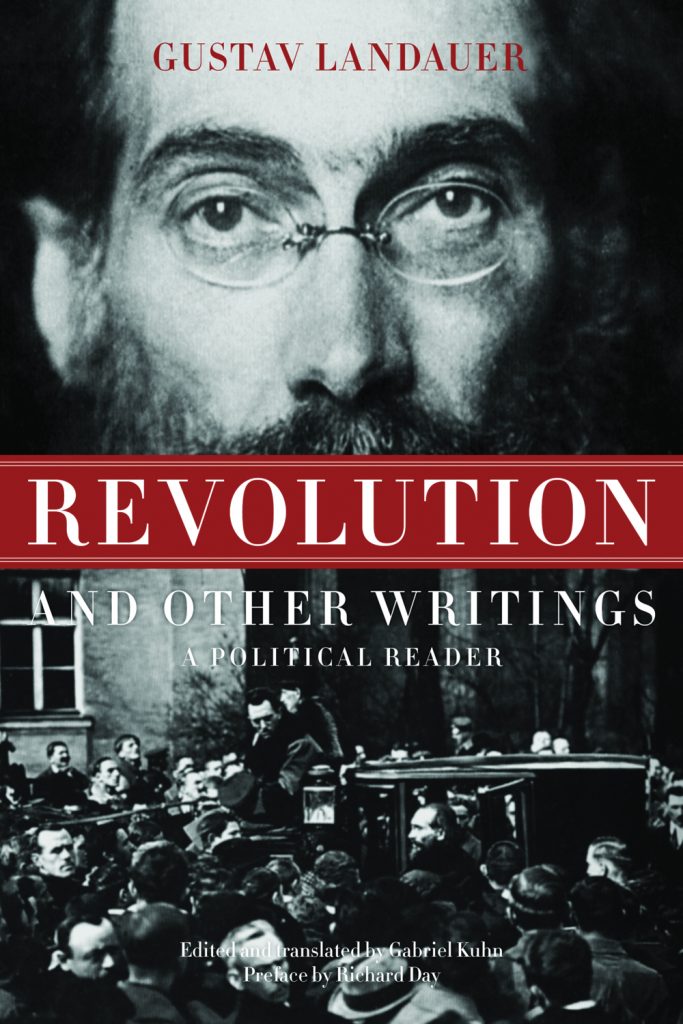By David Tighe
The Fifth Estate Magazine
Gustav Landauer is perhaps the most important German speaking anarchist of the late 19th and early 20th century, but he is not well known in the English speaking world. Despite four book length studies of Landauer and a few translations, there has never been a major collection of his work in English. Gabriel Kuhn and PM Press have changed that. Revolution and Other Writings: A Political Reader is a very good introduction to Landauer’s work for the English speaking world. It contains one of Landauer’s most important pieces, Revolution, twenty-nine other shorter essays, and a selection of correspondence. There is also a solid introduction and bibliography.
The focus here is on Landauer’s political writings, although he wrote voluminously on many topics, especially philosophy and literature. This focus is well-considered because reading the entire book gives you a sense of Landauer’s ideas about anarchy, socialism, and revolution that are not always straightforward and obvious. Landauer was deeply influenced by Christian mysticism, especially the work of 12th century German, Meister Eckhart; he even translated some of Eckhart’s writings into modern German. For some, the mystical elements of Landauer’s writings may make them difficult or unappealing, but I find that this search for an anarchist and non-religious mysticism is one of the most interesting and unique aspects of his work.
The essays are arranged roughly chronologically, which is a good way to follow Landauer’s political progression. From his early essays published in Die Socialist, which he edited from 1893-99, you get a picture of the fiery young radical who was described in a German police file (in 1893) as “the most important agitator of the radical revolutionary movement.” By the time we read his critique of propaganda of the deed and political assassination (Anarchic Thoughts on Anarchism, published in 1901), we see a much more philosophical and mystical writer, as seen in the essay Through Separation to Community. At times in the essay he struggles with perception and time.
He speaks of stopping the process of time to see past, present and future simultaneously. Later, he proposes a mystical unity of individualism and community: “the true individuality that we find in the deepest depths of ourselves is community, humanity, divinity.”
The period of 1900–08 saw Landauer mostly withdrawn from radical politics. He wrote extensively, translated a number of books, including works by Kropotkin, Meister Eckhart, George Bernard Shaw, and with Hedwig Lachmann—three works by Oscar Wilde. He also wrote two of his three most important works: Skepticism and Mysticism in 1903 and Revolution in 1907. Definitely a productive period!
Revolution is easily the book’s most difficult work. Gabriel Kuhn acknowledges this in the introduction: “Landauer’s inconsistent use of the term ‘revolution,’ for example, has confused many readers. In general, Landauer presents ‘revolution’ as a permanent historical struggle for socialism, tied into the renewal of spirit, individuality, and community (in Landauer’s mysticism, all one).
This philosophical interpretation of revolution is the crux of the book. At the same time, Landauer also employs the term in a much more common manner and refers to individual events of—actual or attempted—radical social transformation as ‘revolutions.’ Kuhn also underlines the importance of this essay, calling it “one of the most important anarchist analyses of history and revolution.”
I concur with both assessments. This is a strange and wonderful essay. It is beyond the scope of this review to discuss Revolution in detail, but it needs discussion. Despite any flaws, this is an important essay and unlike anything I’ve read. Landauer’s interesting and influential ideas about utopia are expanded herein. He also expounds at length his ideas about the Christian Middle Ages. He praises alchemists, pantheists, and heretics. Landauer ends the essay by stating that we hardly know anything about the future and that the path we take “will lead via the unknown, with sudden turns, and towards buried treasure.” This essay had been a buried treasure, but now it is revealed by a skillful translator.
Shortly after writing Revolution, Landauer seemingly reengaged with radical politics. What follows in the book is a large number of shorter essays on a wide number of topics: how to create socialism, the Social Democratic Party, anti-militarism and struggle against WWI, the Haymarket martyrs, Benjamin Tucker, May Day, the Mexican Revolution, Esperanto (entitled: Do Not Learn Esperanto!), autonomous rural communities, and so on.
The few letters included are also of great interest—they definitely paint a picture of Landauer as a complex man. Erich Mühsam, Landauer’s life-long friend, is quoted: “Shall I speak of Landauer, the man? Of the way he moved, of his personal relationships with others? Read his letters! Read them!” The one letter included to Mühsam is harshly critical of his writing. The letters also reveal a personal side not seen in his writings, including a series of short telegrams to his daughters in the waning days of the Bavarian Council Republic, shortly before he was murdered on
May 2, 1919.
Gabriel Kuhn has
done us a favor by translating this book. The translations are excellent
and the book is laid out well and easy to use. The introduction gives a
lot of useful biographical information as well as an interesting
discussion of Landauer’s legacy, including his influence on the kibbutz
movement in the 1920s and ’30s. Here’s hoping this book leads to a
revival of interest in Gustav Landauer and to more translations.
Back to Gabriel Kuhn’s Author Page | Back to Gustav Landauer’s Author Page







